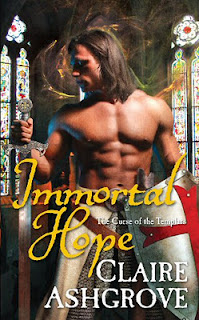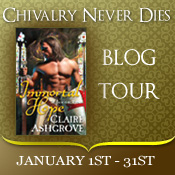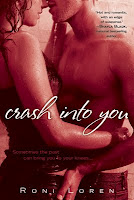So as most of you know, I've just wrapped up a blog tour for CRASH INTO YOU. It was roughly 35 stops and spanned about six weeks. It was fun...and freaking exhausting. Writing that many posts about that many different topics and answering comments all while keeping my own two blogs afloat, doing other promo stuff, and trying to draft a novel that's due soon was a bit overwhelming. And that was with hiring Goddess Fish Promotions to do the organizational piece of the blog tour for me--scheduling the stops, giving me the topics, and getting the posts to the right people. (They were fabulous, btw. Very affordable and there's no way I would've been able to manage it all without that help.)
But even with outside help, I found myself having writer's block both for posts and for my WIP. I felt like I was in the middle of a tornado and I couldn't quite get anything done well. (See last week's post on the 5 Emotional Stages of a Book Launch for more on that.) So now that it's over and I have two more titles to launch this year, I'm left asking the question--was all that work worth it? Is the amount of time the blog tour consumes proportionate to what you get out of it?
I honestly don't know. It obviously doesn't hurt, but it's hard to tell what has an impact on your sales and what doesn't. My gut instinct tells me a review on a book blog is worth much more than a guest post or interview on one. I'm not sure hearing me talk about my writing journey or my family life compels new people to try my book.
I know for me as a reader, if I read a guest blog by an author it doesn't necessarily make me want to buy their book. It may expose me to a book I haven't heard of and if it's something I might like, I may buy. But if the book had been reviewed instead of the author interviewed, it would have the same effect--exposure. And maybe would've have been even more effective because I'm hearing about the book and if the reader/reviewer liked it.
The same goes for blog tour giveaways in my opinion. We're so bombarded with "Free book!" and "Win!" now that it becomes white noise. Yes, there are some people who click and enter every giveaway, but those are often people who aren't going to buy your book if they don't win. They just enjoy the chance to win. And if you give away your own book you're promoting, there are times when people will delay buying to see if they won. That delay could mean you risk them forgetting to buy it when they don't win.
2016 Update:
I continue to do blog tours for each release, but I have pared it down greatly. I do a handful of interviews and maybe 1-2 guests posts. The rest are either book features (info about the book is shared) or book reviews (reviewer was provided with an ARC and asked to give an honest review.) I think the exposure is good and having your book out there and mentioned on social media is important, but there are ways to do it without making yourself insane.
Here are my tips:
1. Hire someone to help - If you can afford it (and prices are usually super reasonable), hire someone who specializes in setting up tours in your genre. They will automatically have more connections to book bloggers than you do and they can do the legwork of getting everything set up. Money well spent.
2. Focus on getting copies out for reviews. Only commit to a few interviews and guest posts, which can be very time intensive.
3. Focus on sites with good traffic - It's okay to stop by some smaller blogs, but research where readers hang out the most in your genre and work toward getting a post on those sites. And if it's a big site, maybe you do a more extensive post.
4. Be POLITE and PROFESSIONAL - Book bloggers are doing all that work for free and they are under no obligation to help you. And even if you give them an ARC, they are under no obligation to review. Don't be a jerk. And follow their submission guidelines if you're approaching them yourself.
5. Do a giveaway but not for the book you're promoting. - This is a good time to giveaway a backlist book or something that's related to your book. I like doing one big tour wide prize. For my book CALL ON ME, I gave away gourmet brownies because there's a fun scene with brownies in the book.
6. On the day of the posts, promote them on your social media. Help the bloggers hosting you by bringing them traffic. And if there's interaction in the comments, stop by and say hi. (If it's a review post, stay out of the comments though.)
7. Don't stress about sales. - Easier said then done but a blog tour is part of a bigger, cumulative effect of promotion and getting your book in front of people.
8. Pace yourself - Don't sign up to do 100 stop tour. You'll wear yourself out and people will get sick of hearing about you. I usually do a two week launch tour with 1-2 stops a day.
9. Have a press kit and excerpts ready to go. - Every blogger will want similar things: your cover, headshot, book blurb, bio, excerpts. Have all those ready to go and easily accessible. And be sure to hold a few excerpts aside for "exclusive excerpts." Bigger sites often like to have an exclusive.
What are your thoughts? Do you think guest posts and interviews sell books? Or do you think a review has more impact? How do you feel about giveaways? What kind of post compels you to buy someone's book?

"Revved up and red-hot sexy, CRASH INTO YOU, delivers a riveting romance!" --Lorelei James, NY Times Bestselling author of the ROUGH RIDERS series
CRASH INTO YOU is now available!
Read an excerpt here.
All content copyright of the author. Please ask permission before re-printing or re-posting. Fair use quotations and links do no require prior consent of the author. ©Roni Loren 2009-2012 |Copyright Statement|




























